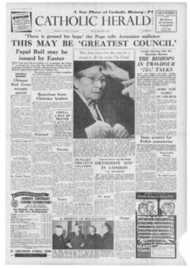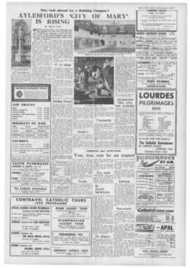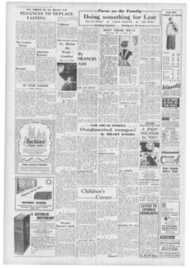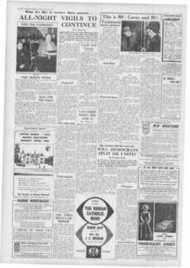Page 3, 6th February 1959
Page 3
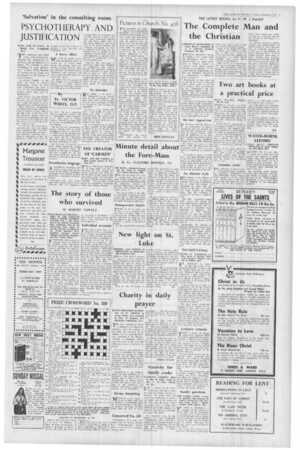
Report an error
Noticed an error on this page?If you've noticed an error in this article please click here to report it.
Tags
Share
Related articles
Germans Critical Of Vatican Move
Poland And Germany
Race And Religion In Eastern Europe
Bishops Of Germany Concerned For Christianity In Occupied...
Joint Christian Action On " Expellees "
The story of those who su rvived
By ROBERT NO WELL
DOCUMENTS ON 11W EXPULSION OF THE GERMANS FROM EASTERN CENTRAL EUROPE. Vol. 1-The Expulsion of the German Population front Territories East of the Oder-Neisse Line, edited by Theodor Schieder, translated by Dr. Vivian Strandcrs, M.A. (London) (German Federal Ministry for Expellees, Refugees, and War Victims, Bonn). ALTHOUGH in this country we certainly know too little of the incredible cruelty with which the Nazis treated not only fellow Germans and Jews but whatever other nations were unfortunate enough to come under their power from 1938 onwards, we know even less of the way in which these people reacted after the end of the war by giving the Germans a taste of their own medicine. Those Germans who were unlucky enough to he living east of the Oder-Neisse line (decided on bythe victorious Allies as the future frontier between Germany and Poland) were driven from their homes, sonic by way of Russian labour camps in which up to 90 per cent. of them died, others by Poles colonising their ''recovered territories". 1 he Germans have calculated that L600.000 Germans perished zis a result of these operations, which were officially described as an "exchange of populations "-a phrase nearly as nauseating as the Nazi " final settlement of the Jewish question ".
Individual accounts
THIS book consists first of a historical survey, covering the Soviet advance into Eastern Germany in 1944 and 1945, the treatment of the German population by the Russian forces and by the Poles, and the expulsions, The second part of the book balances this with documents selected from the many available in which individuals describe their experiences: those who fled before the invading Russians, those who stayed behind, those who were deported to Soviet labour camps. those who were finally expelled by the Poles. While the first part is occasionally marred by a (ierman inability to understand why the Poles nursed such a virulent hatred against them, this is splendidly compensated by, for example, the account (in the documents) of the Jew who was appointed district mayor of Breslau, who had first suffered at the hands of the Nazis and was now to suffer at the hands of the Poles, who made little attempt to distinguish between Nazi and antiNazi.
blog comments powered by Disqus


